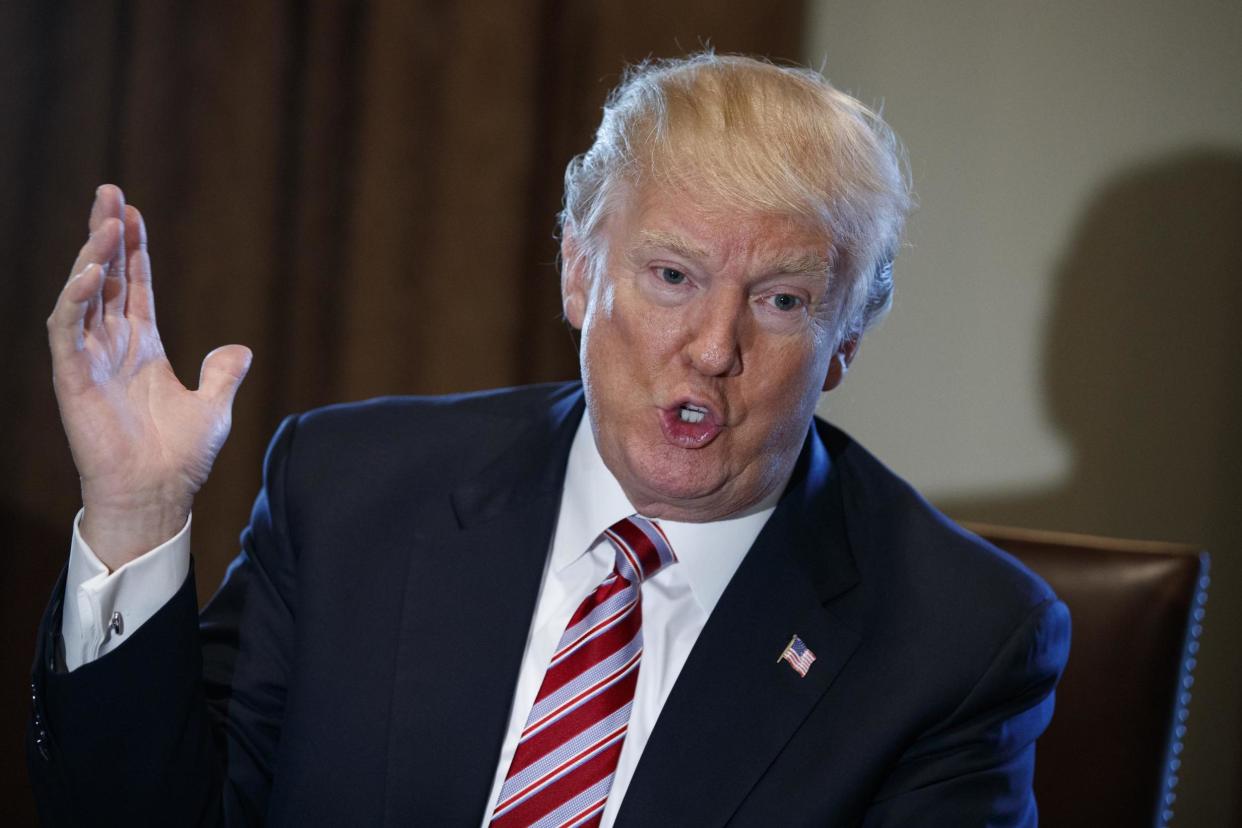Donald Trump’s tax cut stores up trouble ahead as the US economy is close to full capacity

If you have an expansionary fiscal policy hitting an economy that is running at full tilt you have to compensate by having a tighter monetary policy. That is plain common sense.
So, although the initial reaction to President Trump’s comprehensive tax cut was for people and corporations to feel richer, what are the monetary implications, first for America, then for the rest of us?
You can have a debate as to quite how close America is to full capacity. Unemployment at 4.1% is the lowest since the Seventies, but there seem to be a lot of discouraged workers, for labour force participation is much lower than it was in 2000.
But the job market is becoming pretty tight, and that is starting to show through in wage inflation.
Nor is there much of a debate about US consumer optimism, with a historically high proportion of people believing that this is a good time to buy a car or a home.
Now look at the tax cut. It is likely that the federal deficit will be $1 trillion (£710 billion) next year, or more than 5% of GDP. That is huge. The money has to be borrowed — in effect borrowed from the rest of the world. So there is a double whammy.
The Federal Reserve has to push up short rates to counter inflation, and the talk now is that there may well be four rate increases this year. Furthermore, the markets will push up long rates to clear the stock issued by the US Treasury to finance the deficit.
The 10-year rate, which dipped below 1.5% in 2016 and was close to 2% last September, is now just a whisker under 3%. It moved up sharply last week as markets digested the tax cut.
I don’t doubt that the cut will give a boost to the American economy.
All we know about economics suggests that as long as there is confidence if you loosen fiscal policy it increases demand — the only time it might have a perverse effect is if the deficit is so large that it is obviously unsustainable. (We had that problem in 2008/9.)
So what gives? I suspect that we will see a faster rise in US rates at both the short and long end than the markets at present expect.
But given the momentum behind the economy, that will not check growth until well into next year, maybe the year after.
The danger then is that there will be a hard landing — maybe not a recession but certainly a sudden slowing. We are due a cyclical downturn since this US expansion is now the second-longest since the Second World War.
There is no need for it to be a vicious downturn like the last one, but though the tax cut will delay the timing of the next dip, it will make it deeper when it comes. It would be naïve to think we will escape unscathed. The UK economy is running a little behind the US in cyclical terms, perhaps by six or nine months, and we know that we too will be getting higher interest rates this year. Were it not for the confusion caused by Brexit I guess our short-term rates would be at least half a percentage point higher than they are now.
That confusion will quite certainly continue through this year, and probably intensify.
But just as we were held back by weakness in the European economy during the early stages of recovery (the eurozone had a second recession, we didn’t), we are now benefiting from solid eurozone growth. So, although we should not worry too much about this year, there must be question marks over next year and 2020.
As for Europe, faster-than-expected rises in US rates will give cover for the European Central Bank to end its experiment in ultra-loose monetary policy. Now that growth has been re-established, the ECB can declare a victory and retreat. My instinct, however, is that the European recovery is more fragile than it appears, and a US recession would be bad news for it.
The big point here is that we are all prisoners of the economic cycle, the shape of which is principally determined by the US. When America sneezes Europe catches a cold. Thanks to the tax cut, the sneeze will come later: but it’ll be more explosive when it happens.

 Yahoo News
Yahoo News 
